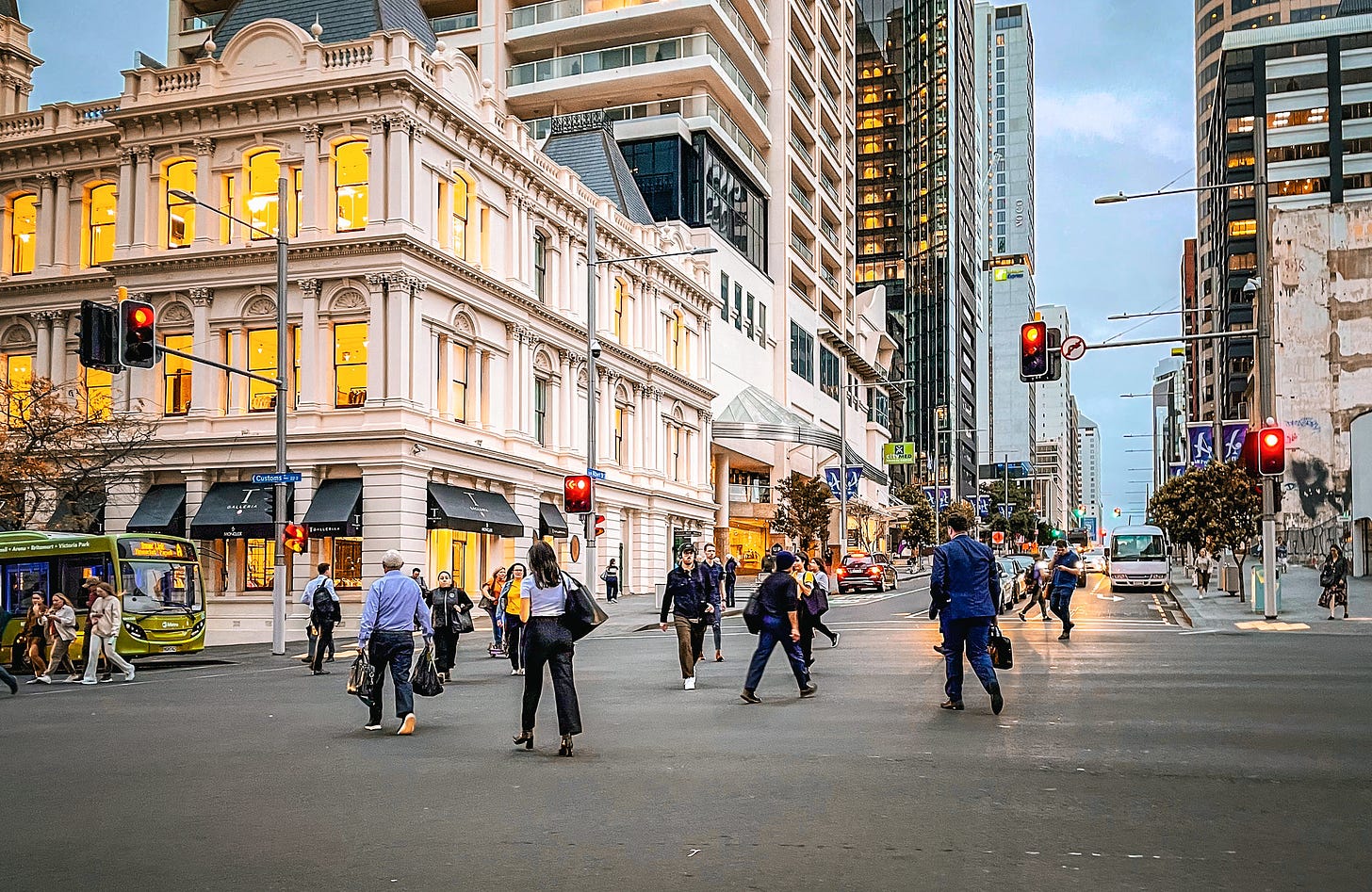TL;DR: Business leaders were thrilled in the December quarter about the election of the National-ACT-NZ First Government, reinstating a pro-National bias in confidence about the wider economy over Labour to nearer the 27 percentage-point long-run average.
That surge in confidence was decoupled from the experience of the wider economy and workers generally, with GDP per capita falling 3% in 2023 and a January survey of 2,000 workers finding 80% believe it will be harder to get a pay rise over the next year and 46.4% saying their income growth had fallen behind cost growth over the last year.
Elsewhere in the news in Aotearoa-NZ’s political economy this morning:
The new Government’s avowed focus on reducing the cost of living in its first 100 days hasn’t extended to electric car owners and bus users in Auckland, with electric vehicles losing their $1,000 a year exemption from road user charges from April 1 and bus fares in central Auckland rising 9.7% from February 4. Waka Kotahi-NZTA statement, Auckland Transport statement.
Support for National in the first public opinion poll of the year surged 4.5 percentage points to 41% in a Taxpayers Union-Curia poll on January 8-10, while Labour fell 0.4 points from Curia’s December 3-5 poll to 28.4%. Support for the Green, NZ First and Māori parties fell. Poll compilation data.
An Independent Electoral Review begun under Labour published its final report yesterday, recommending a lower voting age, a lowering of the MMP threshold to 3.5% from 5%, abolishing the coat-tail provision and lengthening the electoral term from three years. Justice Minister Paul Goldsmith said immediately the Government had ruled out lowering the voting age, but may propose a binding referendum on a four-year term.
In the global political economy this morning:
Donald Trump won the Republican nomination for this year’s US Presidential elections in the first vote of the primary season with record-high 50% support in the Iowa caucuses. Reuters
Oxfam published its annual Inequality Inc report overnight as business and political leaders gathered in Davos for the World Economic Forum, pointing out the world’s five richest men more than doubled their fortunes from US$405 billion to US$869 billion since 2020 and the world was on track to have its first trillionaire within a decade, while poverty wouldn’t be eradicated for another 229 years.
Taiwan alleged Nauru switched its diplomatic allegiance to China this week after Australia failed to pay A$125 million to compensate Nauru for the temporary closure of its migrant detention centre there, and after Taiwan failed to make up the shortfall. Australia denied the allegation. Taiwan Focus
Full paying subscribers can read and hear more detail in my Dawn Chorus podcast above and below the paywall fold. Join our community of paying subscribers to get access to ‘Hoon’ webinars, our private chat system and be able to comment on articles. Paying subscribers also support the public interest journalism we do at The Kākā on housing affordability, climate emissions and poverty.
Listen to this episode with a 7-day free trial
Subscribe to The Kākā by Bernard Hickey to listen to this post and get 7 days of free access to the full post archives.











